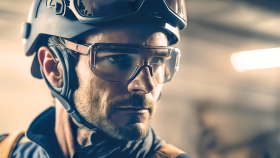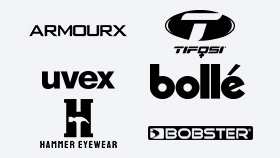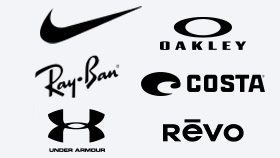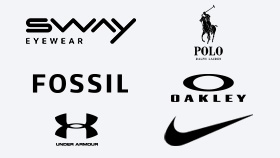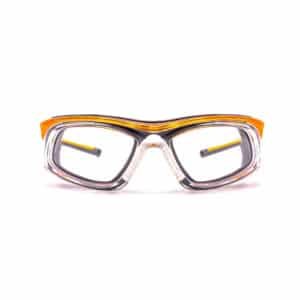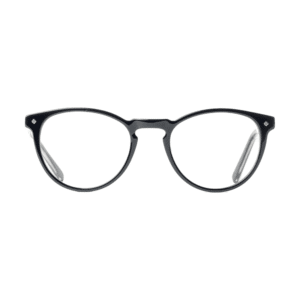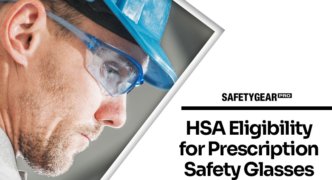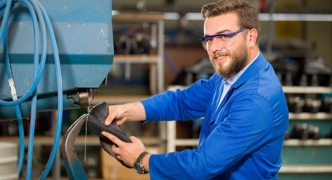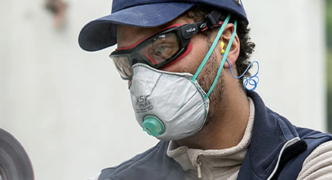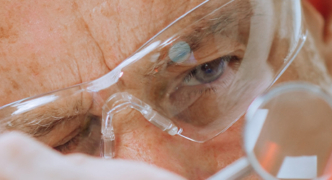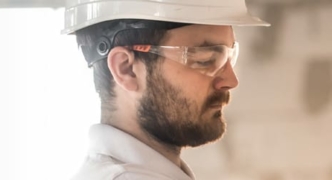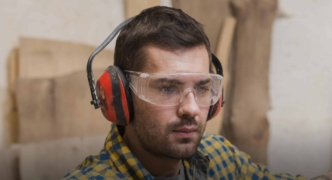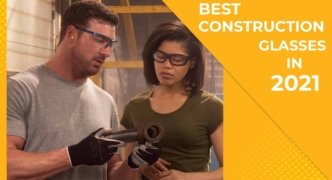Prescription Safety Glasses vs. Regular Glasses

Whether working in a laboratory or construction site, safety should always be your top priority. When it comes to eye protection, there are two options: prescription safety glasses and regular glasses. While both serve the purpose of enhancing vision, there are significant differences between them.
At Safety Gear Pro, we understand that choosing the proper eye protection can be daunting, especially if you need to be more familiar with the different types of eyewear available. We are committed to helping you navigate through these decisions. In this article, we’ll examine the differences between prescription safety glasses and regular glasses to help you make an informed decision.
Prescription Safety Glasses
Prescription safety glasses are designed to provide eye protection in hazardous environments. They are made from high-impact materials that can withstand flying debris, dust, and other potential eye hazards. Safety glasses are typically used in industrial settings such as construction sites, factories, and manufacturing plants.
Here are some key features of prescription safety glasses:
- Made from shatterproof materials like polycarbonate or Trivex
- Designed to provide wraparound protection to prevent debris from entering the eyes from the sides
- Offer better coverage and protection compared to regular glasses
- Come with scratch-resistant coatings to extend their lifespan
- Comply with strict safety standards set by organizations like ANSI (American National Standards Institute) and OSHA (Occupational Safety and Health Administration)
Regular Glasses
Regular glasses, also known as prescription glasses or corrective lenses, are designed to correct vision problems like nearsightedness, farsightedness, and astigmatism. They are made from regular glass or plastic and do not provide any significant eye protection. Regular glasses are typically used in non-hazardous environments like offices, schools, and homes.
Here are some key features of regular glasses:
- Made from regular glass or plastic.
- Designed to correct vision problems.
- Do not offer any significant eye protection.
- Come in various styles and designs to suit personal preferences.
- It can be equipped with anti-glare or UV coatings for added protection.
Limitations of Regular Glasses
- Vulnerability to shattering
- Limited UV protection
- No lens coatings for scratch resistance
Understanding the Difference Between Prescription Safety Glasses and Regular Glasses
Now that we’ve looked at the key features of both safety glasses and regular glasses, now let’s examine the differences between the two.
Material
Prescription safety glasses are made from high-impact materials like polycarbonate or Trivex, designed to withstand flying debris and other potential hazards. On the other hand, regular glasses are made from ordinary glass or plastic and do not provide significant protection against impact.
Design
Prescription safety glasses are designed to provide wraparound protection to prevent debris from entering the eyes from the sides. They offer better coverage and protection compared to regular glasses. On the other hand, regular glasses are designed to correct vision problems and do not provide significant eye protection.
Standards
Prescription safety glasses comply with safety standards set by organizations like ANSI and OSHA. But on the other hand, they do not have any specific safety standards to comply with.
Purpose
Prescription safety glasses are designed to provide eye protection in hazardous environments. On the other hand, regular glasses are designed to correct vision problems and do not offer any significant eye protection.
Different Uses of Safety Glasses
It is essential to wear safety glasses in hazardous environments, whether at work, at home, or during recreational activities.
Prescription Safety Glasses at Work
Prescription safety glasses are a must-have for individuals working in high-risk environments. Some professions requiring safety glasses include machinists, plumbers, carpenters, and laborers. Here are some reasons why safety glasses are crucial in these professions:
- Machinists: Machinists often work with high-speed machines that generate flying debris, which can easily cause eye injuries. Prescription safety glasses with impact-resistant lenses can protect their eyes from such hazards.
- Plumbers: Plumbers work with pipes and plumbing fixtures, which can lead to debris, dust, and chemical splashes in the eyes. Safety glasses with sealed eyecups and anti-fog coatings can prevent such incidents.
- Carpenters: Carpenters frequently work with saws, drills, and other power tools that can cause debris, sawdust, and wood chips to fly. Safety glasses with side shields and shatter-resistant lenses can offer protection against these hazards.
- Laborers: Laborers working in construction or manufacturing industries are exposed to various hazards, such as flying debris, chemicals, and radiation. Safety glasses with appropriate lenses and coatings can protect their eyes and prevent accidents.
In all these professions, wearing Rx safety glasses can prevent eye injuries and boost productivity by reducing eye strain and fatigue.
Prescription Safety Glasses at Home
While prescription safety glasses are necessary for a work setting, they can also be beneficial in various home tasks involving eye hazards. Some of these tasks include:
- Doing yard work such as mowing, pruning, or using a weed eater
- Working on home improvement projects involving power tools, hammers, or nails
- Cleaning with harsh chemicals that can splash into the eyes
- Cooking with hot oils or ingredients that can splatter
- By wearing prescription safety glasses at home, individuals can prevent potential eye injuries and protect their vision while completing everyday tasks.
Prescription Safety Glasses For Sports and Other Recreational Activities
Safety glasses are also important for sports and other recreational activities that involve physical contact or fast-moving objects. Here are some examples of sports where safety glasses may be necessary:
- Basketball: Basketball involves fast movements and jumping, which can result in eye injuries from an elbow or a stray ball.
- Cycling: Cyclists are exposed to dust, debris, and insects while riding, which can cause eye irritation or injury.
- Hunting: Hunters should wear safety glasses to protect their eyes from flying debris and projectiles. They can also help reduce glare and enhance contrast for better visibility in different lighting conditions.
- Driving: Prescription safety glasses with polarized lenses can reduce glare and enhance visual clarity for drivers. They can also protect from flying debris and UV radiation.
- Fishing: Prescription safety glasses that are equipped with polarized lenses can minimize glare and improve contrast, which can be particularly helpful in spotting fish while fishing. They can also protect from flying debris and UV radiation.
Final Thoughts
Suppose you need safety glasses prescription for working in an environment where your eyes are exposed to potential hazards. In that case, investing in quality eyewear that provides the necessary protection is essential. However, regular prescription glasses can be suitable if you prioritize aesthetics and don’t require such protection. Safety Gear Pro is a reputable company that offers a wide selection of both safety glasses online and regular prescription glasses. With their extensive filtering options and helpful customer service, Safety Gear Pro can help you find the perfect pair of safety glasses to meet your needs.
FAQs
Do I need prescription safety glasses if I have perfect vision?
Yes, you may still need prescription safety glasses even if you have perfect vision. This is because safety glasses are designed to protect your eyes from environmental hazards, and prescription lenses can ensure you can see clearly.
How do I know if my prescription safety glasses are OSHA-compliant?
To know if your prescription safety glasses are OSHA-compliant, you should check if they meet the specific requirements set by OSHA for eye and face protection. In addition, look for markings on the glasses, such as ANSI or CSA certification, which indicate that they meet certain standards for safety and quality.
Where can I get safety glasses?
Safety glasses can be obtained from various sources, including eye doctors, online retailers, and safety equipment suppliers. Therefore, it is vital to ensure that the glasses are properly fitted and meet applicable safety standards.
How do I know if I need safety glasses?
If you work in an environment where there is a risk of eye injury, you may need safety glasses. Some examples of such environments include construction sites, manufacturing plants, and laboratories. An eye doctor or safety specialist can advise you on whether you need safety glasses based on the hazards present in your workplace.
Are there any drawbacks to safety glasses?
One potential drawback of prescription safety glasses is that they can be more expensive than regular safety glasses. Additionally, prescription lenses may be thicker and heavier than non-prescription lenses, which can be uncomfortable to wear for extended periods of time. However, the benefits of having clear vision and proper eye protection outweigh these drawbacks.
